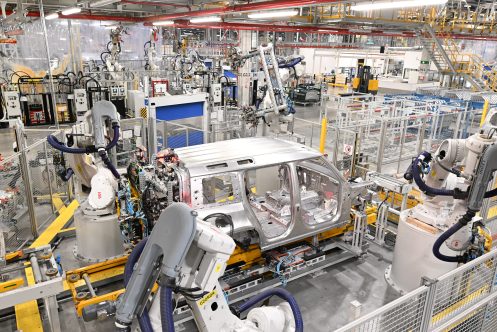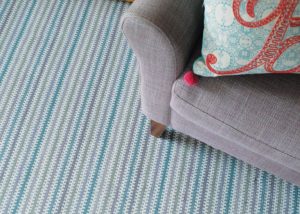Jaguar Land Rover purring after strong financial results at H1 point

Jaguar Land Rover has reported strong second quarter, and first half results for the period ending September 30, 2023.
The luxury car maker, with production plants in Halewood, Merseyside and Solihull and Castle Bromwich in the West Midlands, achieved revenues of £6.9bn in the second quarter, and £13.8bn for the first half.
These are 30% and 42%, improvements, respectively, driven by higher wholesales, a better mix, cost reductions and investment in demand generation, although, also affected by the planned summer holiday shutdown.
The higher revenue reflects higher wholesales of 96,817 in the quarter and of 190,070 in the first half, both up 29% year-on-year.
Wholesale sales are the finished cars JLR sells as a business, as opposed to retails which are vehicles customers buy from retailers.
Profits before tax and exceptional items for the second quarter were £442m, and £877m in the first half of the 2024 fiscal year.
By comparison, the Q2 figure was up by more than £600m on the previous year, and by £1.5bn for the first half.
Free cash flow was £300m for the quarter and £751m for the first half of the financial year, which is JLR’s best first half cashflow on record.
At the end of the quarter, total cash was £4.3bn and net debt was £2.2bn, with gross debt of £6.5bn.
Total liquidity was £5.8bn, including the £1.52bn undrawn revolving credit facility maturing in March 2026.
In October 2023, JLR completed a buyback of around $400m equivalent of its outstanding bonds which will be included in the financial results reported for Q3 FY24. The buyback demonstrates the recent strong financial performance of the company and resulting liquidity.
JLR said its order book remains strong with more than 168,000 client orders at quarter end, with Range Rover, Range Rover Sport and Defender continuing to make up a significant portion, accounting for 77% of the order book overall.
Looking ahead, production and wholesale volumes are expected to gradually increase in the second half. The EBIT (earnings before interest and tax) margin for FY24 is now expected to improve to around eight per cent, compared with the six per cent plus previously indicated.
The group continues to expect free cash flow of more than £2bn in FY24, with net debt reducing to less than approximately £1bn by the end of FY24.
The manufacturer said its Reimagine transformation continues, with investment of £15bn over five years to transition to an all-electric vehicle future.
It is investing more than £1.4bn over next five years in JLR’s Halewood plant, in Merseyside and Solihull plant, in the West Midlands, to produce next generation electric models
The JLR Nitra plant, in Slovakia, was also recently confirmed to build next generation electric vehicles.
There will be a £250m investment in the JLR Future Energy Lab at Whitley Engineering Centre, Coventry, to develop electric drive units (EDUs) in-house.
And the group, owned by Indian conglomerate, Tata Group, is hiring for 300 new technician roles to develop and build next generation EVs at JLR’s West Midlands engineering and manufacturing sites.
Furthermore, the group is partnering with Wykes Engineering to develop one of the UK’s largest second life battery energy storage schemes.
JLR and Tata Passenger Electric Mobility (TPEM), both 100% subsidiaries of TML, have entered into a Memorandum of Understanding for the licensing of JLR’s Electrified Modular Architecture (EMA) platform, for a royalty fee.
The partnership, which also includes an Engineering Services Agreement, will accelerate the development of TPEM’s ‘premium pure electric’ vehicle series branded ‘Avinya’, available from 2025.
Chief executive, Adrian Mardell, said: “I am pleased to announce another strong quarter of financial and operational progress for JLR.
“We have delivered our best ever cashflow in the first half of this financial year and delivered another profitable quarter due to the strength of our financial performance.
“These results demonstrate the huge desirability of our modern luxury product portfolio and the skill of our hard working teams who have increased production to ensure we can satisfy the substantial demand for our cars more quickly.”
Chief financial officer, Richard Molyneux, said: “I am very pleased with how our financial performance has developed in recent quarters and as a result we are in a position to increase our target EBIT margin from six per cent plus previously indicated to around eight per cent for the full year.”








